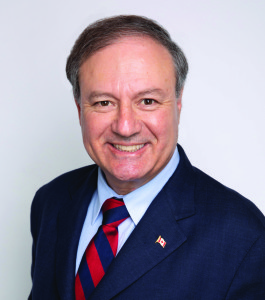“Good strategy starts with good research” Marcel Wieder – Arrow Communications Group
Election laws regulate most aspects of federal political party financing, both during and outside of election periods. The purpose of such regulation is to encourage greater transparency of political party activities and ensure a fair electoral arena that limits the advantages enjoyed by those with more money. Election finance laws govern the manner by which political parties and candidates are funded, and the ways in which parties and candidates can spend money.

Political parties and candidates need money to pay election campaign expenses, funds that come from the public and the private. Canada’s system of party and election finance regulation provides two forms of state funding to political parties and to candidates. Political parties and candidates face limits on the amounts they may spend during an election. According to The Canadian Encyclopedia, political parties may spend 73.5 cents for every voter in districts where they are running candidates.
Marcel Wieder, the president of Aurora Strategy Group Inc., helps clients with their political campaigns and, as he mentioned to Milénio Stadium, money can make a big difference “to get the message delivered”. Wieder has experience at the federal, provincial and municipal levels and he already provided public affairs advice to senior members of government.
Milénio Stadium: How do you explain the type of work that you provide to your clients?
Marcel Wieder: My job is to help get my client’s message delivered. The focus is in three areas: communications, messaging and strategy. We design ads, brochures, radio, television and digital advertising that helps target a message to the right audience at the right time.
MS: You have helped 75% of your clients to be elected. How do you build a political strategy?
MW: Good strategy starts with good research. We use polling and focus groups to help us understand the issues facing the candidate or community. Through research we are able to identify the types of messages that will resonate among targeted voters. We also use other types of research to identify historic voting patterns, media stories to identify issues and meetings with community leadership to help gauge issues.
MS: What kind of message are political candidates trying to pass on the voters?
MW: Each campaign and candidate has its own message. There are two fundamental messages in politics. The first is change. That message identifies that the current state of affairs is not acceptable and that the only way forward is through a change in leadership. The second message is to stay the course. Under the current leadership things are getting better and that change is not necessary. In fact, some may argue that change at this time may be too risky with the possibility of losing all the advancements gained to date.
These are the two overarching messages that campaign offer voters. Once they have identified which of these, they will deploy candidates and parties will try to develop policies that support one of these two positions. If, for example, they are arguing to stay the course they may offer policies that reinforce the gains already made. If they favor change, they may offer policies that significantly differ from the current program.
MS: In what way does the economic and financial power influence the political arena?
MW: Money or economic and financial power has always played a role in politics. There is an old political saying, “Money is the oxygen of campaigns, and without it you’re dead”. That’s why there are limits on both how much you can receive from a contributor and how much you can spend on your campaign. These limits have been developed to create a more equal footing for all candidates. It is also why various levels of government provide cash or tax credits as an incentive for people to participate in the political process through donations to candidates or political parties.
Having economic and financial power may also help a candidate or party receiving more deferential coverage in the media. A person who has extensive business experience and contacts may get more sympathetic coverage in the business press than someone who is fresh out of school. As well, those who travel in business circles tend to have access to people with money to help fund their campaigns.
MS: You work on political campaigns at the federal, provincial and municipal level. What are the main differences and what are the risks?
MW: Federal and provincial campaigns tend to be party focused while municipal campaigns are mostly independent. As a result, candidates at the federal and provincial levels can rely on the leader and party for policy and organization. Municipal candidates are left on their own.
Federal and provincial candidates also benefit from generous financial incentives as well as being able to use their party leader or other high profile members to help raise money. In return, candidates have to abide by party rules and discipline. That means they are not allowed to criticize party policies that they may disagree with or propose party policies on issues without prior approval. If you disagree with party policy you may be reprimanded or worse dropped as the party’s candidate in your electoral district.
MS: How do we build a campaign and how long it takes? How much does a political campaign cost?
MW: Building a campaign starts the moment you decide to run for office. It can several months to several years to organize and effective and successful campaign. Rarely is it too early to start planning your campaign. Once you decide to run a campaign you need to start raising the money and building the organization including paid staff, consultants and volunteers.
The cost for a campaign varies with the office sought. There are limits on how much you can spend in a campaign and how much an individual can donate. However, in some cases the limits only apply once the campaign is officially called. Money raised or spent before this time is exempt from limits.
Joana Leal/MS








Redes Sociais - Comentários